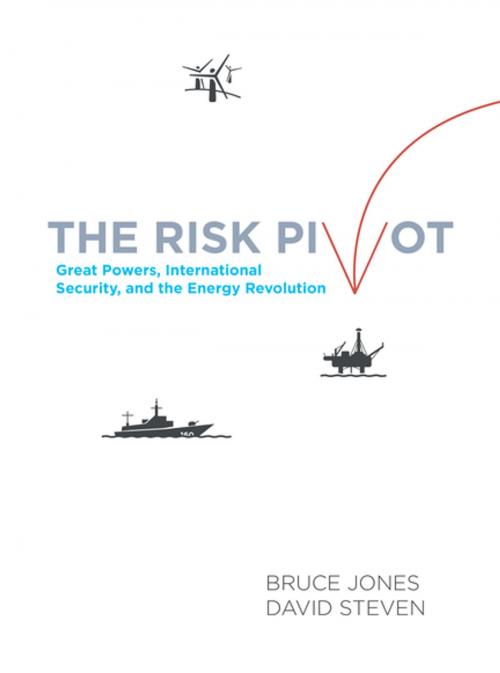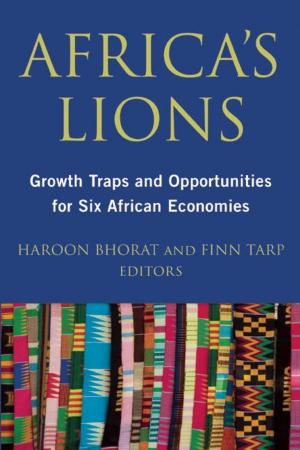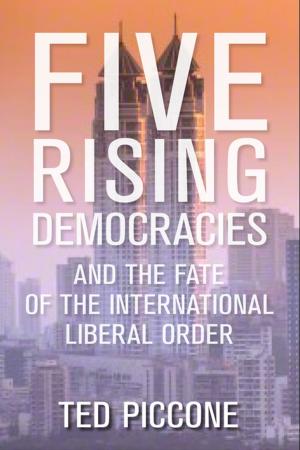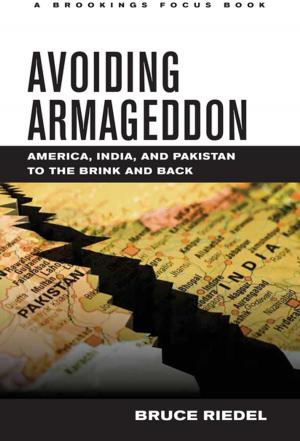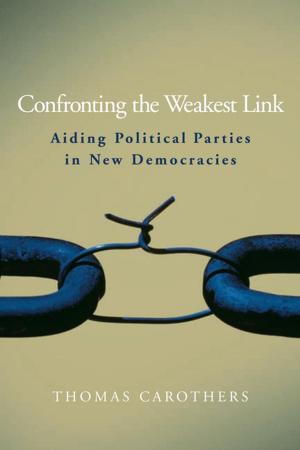The Risk Pivot
Great Powers, International Security, and the Energy Revolution
Nonfiction, Social & Cultural Studies, Political Science, Government, Public Policy, Business & Finance, Industries & Professions, Industries, Economics| Author: | Bruce D. Jones, David Steven | ISBN: | 9780815726050 |
| Publisher: | Brookings Institution Press | Publication: | November 21, 2014 |
| Imprint: | Brookings Institution Press | Language: | English |
| Author: | Bruce D. Jones, David Steven |
| ISBN: | 9780815726050 |
| Publisher: | Brookings Institution Press |
| Publication: | November 21, 2014 |
| Imprint: | Brookings Institution Press |
| Language: | English |
The last decade has seen a revolution in global energy. First, we saw explosive growth in demand from Asia's rising powers, which fueled fears about scarcity and conflict. But we've also seen an American revolution in technology and markets, resulting in a dramatic increase in sup-ply. This is strengthening America's hand in the world-but it's not without complications. There are major security consequences of these shifts. Among the most consequential are China and India, Asia's emerging giants, which are increasingly exposed to political risks associated with energy risks, as well as the energy flows, pivoting to Asia. Meanwhile the great powers struggle to balance their need for fossil fuels with a mounting effort to tackle climate change. The top powers, and the United States above all, face a stra-tegic choice: whether to use energy as a weapon of geopolitics, or as a tool of a stable order.
CONTENTS
Introduction
-
The President and the King-Key Messages of the Book
-
The Energy Revolutions-A Primer
Geopolitics in Flux-The Players
-
Choices-Scenarios, and the Choice the Powers Confront
-
Rough Seas Ahead-The Great Powers' Search for Energy Security
Globalization and Complexity-The Problems
-
Transition in the Gulf
-
The Turbulent Middle
-
Fragile States
-
The Russian Problem
-
Connections-from Pipelines to Politics
Governance-The Partners
-
An Emerging System of Global Energy Governance
-
Leadership Choices
The last decade has seen a revolution in global energy. First, we saw explosive growth in demand from Asia's rising powers, which fueled fears about scarcity and conflict. But we've also seen an American revolution in technology and markets, resulting in a dramatic increase in sup-ply. This is strengthening America's hand in the world-but it's not without complications. There are major security consequences of these shifts. Among the most consequential are China and India, Asia's emerging giants, which are increasingly exposed to political risks associated with energy risks, as well as the energy flows, pivoting to Asia. Meanwhile the great powers struggle to balance their need for fossil fuels with a mounting effort to tackle climate change. The top powers, and the United States above all, face a stra-tegic choice: whether to use energy as a weapon of geopolitics, or as a tool of a stable order.
CONTENTS
Introduction
-
The President and the King-Key Messages of the Book
-
The Energy Revolutions-A Primer
Geopolitics in Flux-The Players
-
Choices-Scenarios, and the Choice the Powers Confront
-
Rough Seas Ahead-The Great Powers' Search for Energy Security
Globalization and Complexity-The Problems
-
Transition in the Gulf
-
The Turbulent Middle
-
Fragile States
-
The Russian Problem
-
Connections-from Pipelines to Politics
Governance-The Partners
-
An Emerging System of Global Energy Governance
-
Leadership Choices
